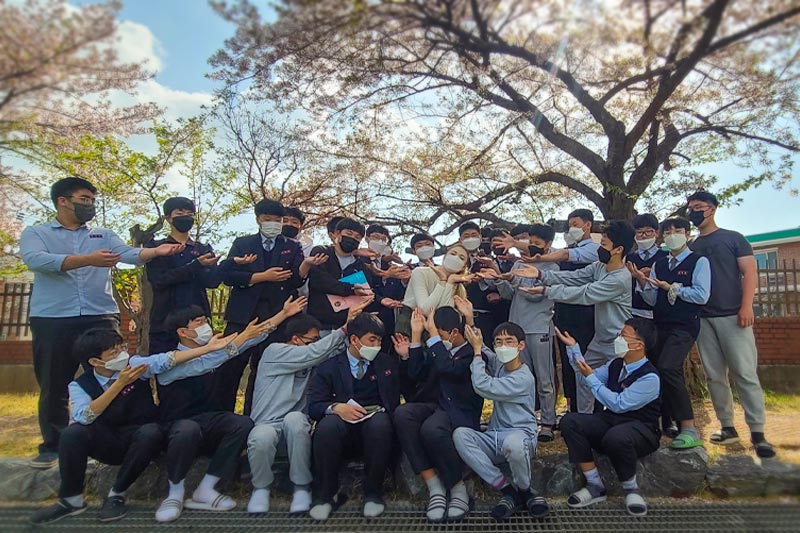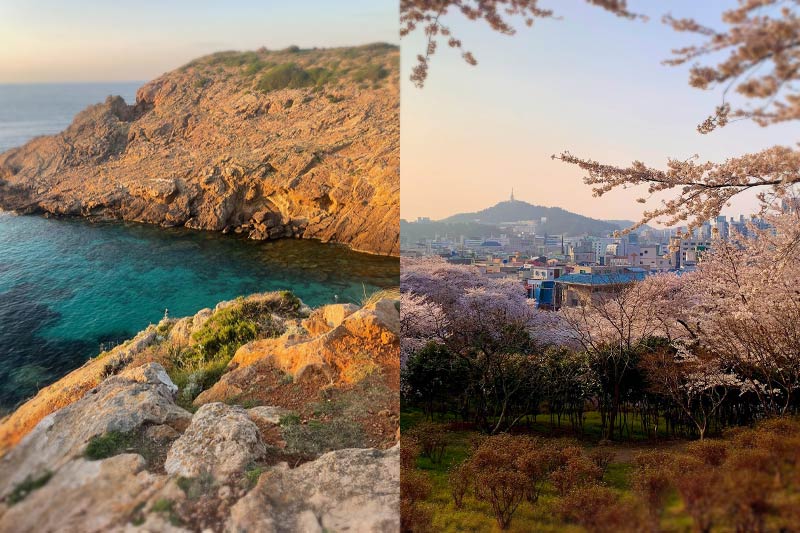
“This is Once in a Lifetime”
Reflecting on Fulbright Experiences
By Melyssa Allen
“This is Once in a Lifetime”
Reflecting on Fulbright Experiences
By Melyssa Allen
In college, Briana Petrusa, ’21, had a plan. She would finish her undergraduate degree at Meredith, where she was studying Spanish and chemistry. Then she would go straight to medical school on her path to becoming a doctor.
Petrusa had already started the medical school application process when Associate Professor of Spanish Vilma Concha-Chiaraviglio made a suggestion that changed everything.
Concha-Chiaraviglio, who serves as the Fulbright advisor at Meredith, encouraged Petrusa to apply for the prestigious program, which funds scholarships for students to study, conduct research, or teach English abroad.
“I never had Dr. Concha as a professor, but one day she came up to me and said, ‘I’ve heard a lot about you and you need to apply for a Fulbright.’”
This conversation led to an advising appointment during which Petrusa learned more about the program.
“I had a plan of going to medical school and felt like I needed to keep going with my studies,” Petrusa explained. “She said ‘you need to apply – the worst that could happen is you apply and you don’t get accepted or if you do, you could choose to decline.’”
When her acceptance came, Petrusa decided to take advantage of the opportunity. She spent her Fulbright year conducting medical research on Parkinson’s Disease at the Cajal Institute of Neuroscience in Madrid, Spain.
Petrusa is one of several Meredith alumnae to be selected for the Fulbright Program. In 2021, she and two other Meredith candidates were chosen. This result in a very competitive year was the highest in Meredith’s history. Bailey Birtchet, ’21, was selected to study in the Netherlands at the Master Institute of Visual Cultures, St. Joost School of Fine Art and Design, and Delaney Rhodes, ’20, received a Fulbright grant to teach English in South Korea. In recent years, Katelyn Smith, ’16, and Belle Williams, ’19, were selected for Fulbright experiences teaching English in Mexico.
Support from Mentors
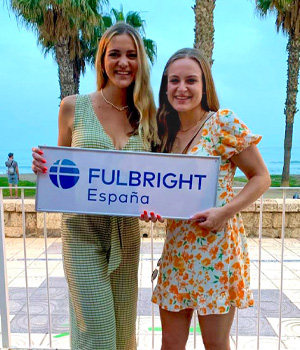
Briana Petrusa, right, and another student in Spain for their Fulbright experience.
Concha-Chiaraviglio supports Meredith students through the application process. She says the characteristics that make a good candidate include a strong academic record, independent thinking skills, and an interest in the world.
A good fit for the program is “a student who is open to discovering the world and new cultures, who wants to learn about another culture, and who wants to be an ambassador for their country,” Concha-Chiaraviglio said.
In addition to Concha-Chiaraviglio, other mentors at Meredith were also influential in Petrusa’s decision.
“My pre-med advisor, Dr. [Karthik] Aghoram, really motivated me to pursue it. My mentors at Meredith and my family were the biggest motivators in getting me to apply and to go.”
When she received the notice that she’d been selected for the Fulbright program, she called on her mentors again.
“I was very happy but in the moment I didn’t know what to do. So I reached out to Dr. Concha, of course, and she was over the moon happy,” Petrusa recalled. “And I asked Dr. Aghoram, what about medical school? He said ‘you need to live a little. Medical school can wait for you – go to Spain. This is once in a lifetime.’”
By this point, Petrusa had been accepted to East Carolina University’s Brody School of Medicine, where she deferred her place for a year for the Fulbright opportunity.
Petrusa put a lot of thought into where she would want to spend her Fulbright year. “I chose Spain because I am Spanish,” she said. “I had never been but my grandpa is from there, so I had some ties there. 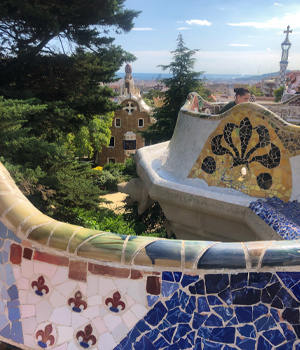 And I wanted to be sure to go to a Spanish-speaking country because my whole undergrad education was tailored to learning Spanish so I can help that patient population in the future as a doctor.”
And I wanted to be sure to go to a Spanish-speaking country because my whole undergrad education was tailored to learning Spanish so I can help that patient population in the future as a doctor.”
Her Fulbright experience supported that career goal, as she mastered Spanish medical terminology while working in medical research on a project testing the effectiveness of a protein therapy on mice.
Once the initial year was complete, Petrusa opted to spend another year at the Cajal Institute of Neuroscience to help move the project further forward.
“When I went home for Christmas my first year, I came back and Spain just felt like home. I started looking into what the process would be if I could stay,” she said.
Again she turned to Meredith mentors for support.
“First it was a personal decision, and then I had to talk to people to make sure I wasn’t doing something risky. I talked to Dr. Aghoram, and he encouraged me to do it,” Petrusa said.
Now, she has successfully gone through the medical school application process a second time, getting selected for admission to several schools. She has chosen to attend UNC School of Medicine in Chapel Hill. “I’m planning to stay in the state of North Carolina for my four years of medical school,” Petrusa said. “Continue working with the Latino population through community service and engagement, and also continuing research.”
Petrusa believes her decision to attend Meredith led her to where she is now.
“This was a community of endless support and I don’t think I would have had this support and these experiences at another college,” Petrusa said. “I wouldn’t have applied for Fulbright, I don’t think I would have done as well academically. Who knows about medical school? I am very happy about my choice to attend Meredith.”
Embracing a New Culture
No matter what she does next, Petrusa said being in the Fulbright program has changed her life.
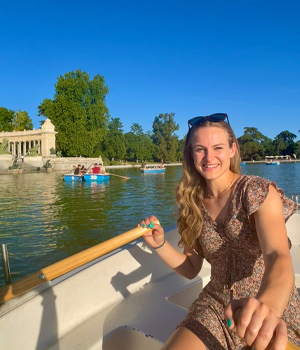 “The worldview I have now is so different. I consider myself a global citizen. My concept of how I want to help is much greater. Now I have the confidence to go abroad and speak a totally different language and help a community that’s not like me at all,” Petrusa said.
“The worldview I have now is so different. I consider myself a global citizen. My concept of how I want to help is much greater. Now I have the confidence to go abroad and speak a totally different language and help a community that’s not like me at all,” Petrusa said.
Now that she’s experienced a different culture, Petrusa feels more open to other possibilities.
“I was always such a stressed-out person before I came to Spain. I had to get this, this, and this done. I had to start medical school, it had to be this way, and no way else,” she said. “And once I got to Spain, I realized, you can’t have a plan for life. You never know what’s going to happen, and I have to take every day one day at a time. Enjoy my life and do my best.”
Intercultural Connections in South Korea
An interest in working abroad led Delaney Rhodes, ’20, to the Fulbright Program.
“I was encouraged by my professors to look into applying for a Fulbright grant. I learned that my previous experience working with international nonprofit organizations and teaching English as a Second Language would make me a good applicant for the grant. I decided to commit to the application process and was lucky enough to receive the opportunity to be an English teaching assistant in South Korea,” Rhodes explained.
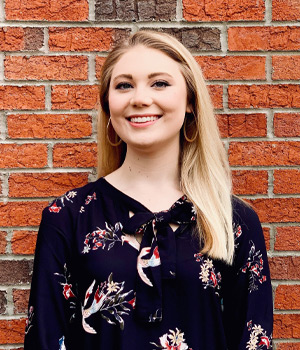 Rhodes’ experience fulfilled the Fulbright Program goal of encouraging cultural connections.
Rhodes’ experience fulfilled the Fulbright Program goal of encouraging cultural connections.
“Teaching in South Korea taught me that while each culture has its distinctive attributes that may be new and unfamiliar to me as a visitor in the country, as individuals within a larger global society together, there are things that universally connect us all despite our differences in life experiences and our geographical separation,” she said.
Teaching in South Korea let Rhodes find commonalities between herself and her students. “My middle school students still found memes interspersed throughout my PowerPoints funny, we could still have conversations about our favorite musicians and sports teams, and we could still share our dreams and goals for the future and cheer for each other’s success.”
Rhodes said she made lasting connections during her year in South Korea. 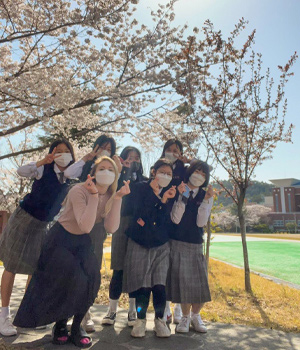
“I taught over 600 students at my school, and while this number was intimidating at first, I found it amazing to work on building bridges of understanding and respect within my interactions with each of them,” Rhodes said.
While experiencing a different culture, Rhodes found that personal stories are universal.
“As a lifelong lover of literature and an alumna of the English Department at Meredith College, stories have always shaped my education and understanding of the world. Storytelling is one of the most valuable forms of communication and connects us through relating to one another’s human experience with empathy and shared sentiment.”
While traveling in South Korea, she wanted to hear the stories of the people she met and to share her own. 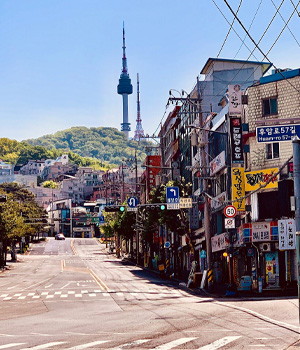
“Listening to the stories of others to build a narrative of bilateral understanding and connection is essential in nurturing the growing global interconnection of society,” Rhodes said. “Through my experience as a community member and teacher in South Korea, I was able to work toward this understanding firsthand. I hope to continue working towards this connection in my future professional pursuits.”
Interpersonal connections between the two cultures were a highlight of her experience.
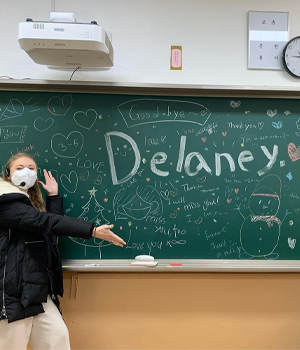 “I learned so much from my students and am grateful for their presence in my life,” Rhodes recalled. “From making me laugh when I felt homesick, to seeing the pride when learning to express themselves in another language, I will remember the moments in the classroom with them as the most meaningful highlights of my grant year.”
“I learned so much from my students and am grateful for their presence in my life,” Rhodes recalled. “From making me laugh when I felt homesick, to seeing the pride when learning to express themselves in another language, I will remember the moments in the classroom with them as the most meaningful highlights of my grant year.”
Now that Rhodes has completed her Fulbright grant year, her career plans have a global focus.
“I plan to attend graduate school and obtain a master’s degree in international migration studies,” she said. “I would like to work within a non-profit or a government setting that is actively working to improve the United States’ policies and general support of refugee and immigrant populations.”
Lasting Impact of Fulbright Opportunities
The Fulbright experience had a lasting impact on both of these Meredith alumnae.
Petrusa believes her Fulbright experience and time in Spain have changed her for life. “A lot of the change within myself just came from experiencing life in Spain, adopting their values and leaving everything I had set in my mind beforehand at the door and opening myself to their culture,” she said. “Not that I had to change myself but just be open to different perspectives.”
Rhodes has returned with a desire to continue seeking global connections.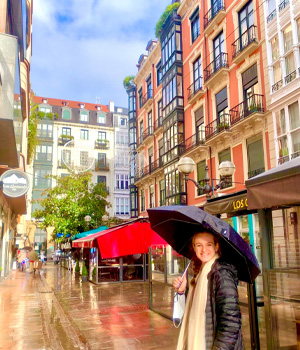
“I would love to work abroad again. Living in another country truly teaches you how much there is to learn about the world, both from the places you visit and the individuals you meet. It is such an invaluable experience that I encourage anyone considering working abroad to seek out opportunities to do so,” Rhodes said.
Concha-Chiaraviglio has seen this kind of transformation in other Fulbright participants.
“I love that students come back bicultural. They really want to be ambassadors of that country,” Concha-Chiaraviglio said. “The benefits of having a Fulbright follow them for the rest of their professional lives.”

